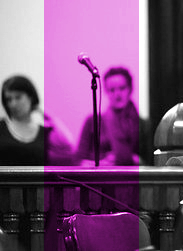Councils resist broadcast order
 Local governments are less than impressed with the NSW Government’s announcement of a new council meeting code.
Local governments are less than impressed with the NSW Government’s announcement of a new council meeting code.
The State Government has introduced into a new Code of Conduct Meeting Practice that requires the compulsory webcasting of local government meetings.
Local Government NSW (LGNSW) President Cr Linda Scott said there were numerous pressing issues for the state’s 128 councils, 100 per cent of which are drought-declared, and a new code for meeting procedures was not one of them.
“NSW Mayors and councillors welcome every opportunity to ensure our meetings and governance meet the highest standards of transparency,” Cr Scott said.
“However, in a time of state-wide drought and a global waste crisis, we’re seeking to work with the State Government on the issues that matter – not meeting procedure.
“Local governments are asking to work with the Premier and Local Government Minister on the issues that matter to our communities – taking steps to mitigate the global waste crisis and recycle more, properly fund our public libraries and pools, and mitigate the worst aspects of dangerous climate change and drought.”
Cr Scott said the compulsory webcasting move is yet another cost shift onto councils who are not already webcasting their meetings.
“In our regional and remote areas, mayors and councillors have expressed concern that costly compulsory webcasting will be introduced into areas without any internet access because of federal government failures to deliver the NBN,” she said.
“This is another expense that leaves councils no choice other than to raise rates or divert funds from existing programs to make webcasting happen.
“This Ministerial announcement comes a little over a week after the latest research found NSW councils and their ratepayers were already bearing an $820 million burden in cost shifting each year.
“This trend is being driven by State Government policies such as this one.”
Cr Scott said it was also extremely concerning that the Government was trying to crack down on what democratically elected Mayors and councillors could and could not discuss in Mayoral Minutes.
“Local governments support open, transparent and democratic government, not gagging Mayors and councillors,” she said.
“Mayors and councillors must be able to speak freely and be the voice of their communities.”







 Print
Print